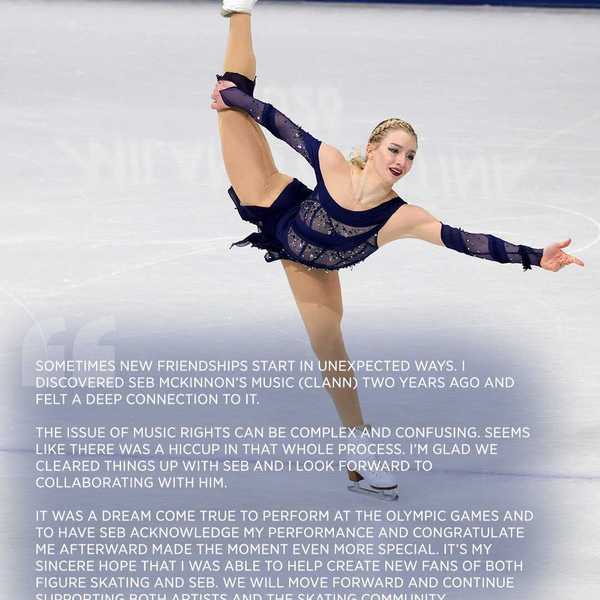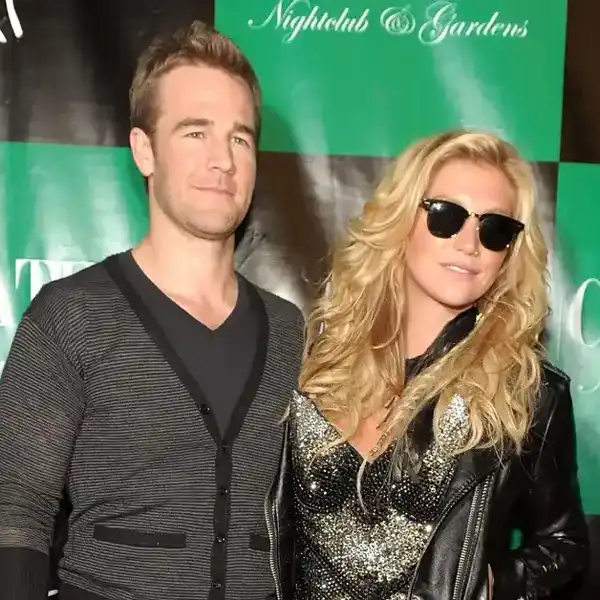'Queen' Pegi Earns Walt Grealis Special Achievement Honour
Pegi Cecconi, SRO/Anthem's secret weapon and protector of the flame, is to receive her award at a March Juno ceremony in Saskatoon.

By Nick Krewen
What Pegi wants, Pegi gets.
Pegi Cecconi, this year’s Walt Grealis Special Achievement Award winner, is a trailblazer who has built a reputation as a bit of a business bulldog during her 40-year-plus association with SRO Management Inc and its Anthem Records label. A tough-as-nails negotiator, the self-described "Queen of Fucking Everything" played a crucial role in building the multi-million-dollar Rush empire and, by example, became a role model for countless women in Canada's music industry.
As SRO President and co-founder Ray Danniels’ go-to Vice-Pres, the two-time Juno Award winner and 2015 recipient of CIMA’s Brian Chater Pioneer Award, Cecconi dove into the minutia on a great number of corporate fronts – record label negotiations, publishing and merchandising - to strike favourable deals for her charges. She also executive produced the trio’s accomplished run of concert DVDs, earning her Junos for Rush In Rio and the acclaimed documentary Beyond The Lighted Stage.
Her secret?
"I love business," Cecconi said recently over a cup of tea at her Toronto abode as she defined what made her successful.
“I was very practical. I just followed my gut, because if I thought something would work, it generally did."
Admitting that she loves to tear through contracts “like a Harlequin Romance,” and “find money” to fuel the Rush engine, Cecconi was also quick to recognize her limitations.
“I don’t have ears,” she confesses. “Rush would come to me with a song and say, you pick it – because if you pick it, we’re not going with it.“
She breaks out into laughter, but then becomes reflective with one of her few regrets.
“I wish I had gone out on my own,“ she laments. “I wish I had the nerve to go out on my own. My problem was, I was just business.
“I’ve never been aggressive. But I am aggressive with other people’s money.”
It’s this aggression that has made Pegi Cecconi one of most respected, empowered and dominating executives - especially during a time when women weren’t making a lot of inroads into the higher rungs of the Canadian music industry corporate ladder.
Cecconi considered herself an honourary member of "the Original Boys' Network" and credits some of the veteran guard with mentoring her.
“People like (music publisher) Brian Chater and (Attic label founder) Al Mair and (True North Records founder) Bernie Finkelstein took really good care of me," she states. "They probably pushed me in more ways …they made me realize I was smart. Ray didn’t always make me realize I was smart.”
The Pegi Cecconi story began in Northern Ontario, in the tiny Timmins ward of South Porcupine, Ontario.
Growing up in a household of two brothers and two sisters, her dad Tony owned a saloon and her mom Cora played the role of homemaker.
"I grew up in a mining town," Cecconi recalls. "The bars used to close between 5 and 7 p.m. to get the miners home from the bars. My poor Mom – she fed us at 5, my Dad at six or 6:30, whenever he could get away at the last minute."
According to Pegi, Dad was quite the penny-pincher, but he was generous in terms of grooming his children to realize their ambitions.
"My Dad always said, 'Well, why would you want to be a secretary when you could be a lawyer? Why would you want to be a nurse when you could be a doctor?'
My Dad, as sexist as he was, as far as his kids were concerned, they could be anything they wanted."
Music was a popular pastime in the family, with everyone taking up an instrument except one - Pegi.
While she may not have had ears for music, Miss Cecconi had a nose for business.
Pegi found her calling early. Elected as social convener at Roland Michener Secondary School, she booked bands for high school dances, concerts and social gatherings in Timmins and New Liskeard - and often out of her basement through an ad-hoc agency she called TNT - True North Talent. One of the agents she dealt with was Ray Danniels in Toronto.
“Ray used to try to sell me Rush. I'd tell him, 'No way. I can get a four-piece band for the same price as a trio!’" she laughs, a sparkle in her eye.
When she turned 18, Cecconi left the confines of home to embark on a new career. But she almost didn’t make it to Toronto: a tempting job offer from London-based Dick James Music - publishing home to the Beatles and Elton John and Bernie Taupin – would have been her destination, save for one four-legged issue:: Pegi’s dog.
“Back in the '70s, you couldn’t take dogs to England,” she notes.
Elton’s loss eventually became Rush’s gain. Cecconi began working for the Concept 376 Agency, run by Tommy and Vic Wilson. .
"Tommy was managing Ocean, who had just scored a big hit with Put Your Hand In The Hand, and he came off the road and decided he was going to make a go of his agency,” Cecconi remembers. “I booked bands, and six months later, Ray finally hired me when he was starting his management company. It was Music Shoppe International, and I booked for them.”
Danniels eventually formed SRO Management with Vic Wilson and founded the Moon and Taurus labels with acts Rush and Liverpool in tow. Cecconi joined and worked with them in 1973 for four years until she took a brief detour - a job with entertainment lawyer Bernie Solomon in 1977 and 1978 as his assistant.
"It was the worst job ever," Cecconi recalls. "I couldn’t type, and I couldn’t take shorthand. I’d be typing these sub-publishing contracts that were all Greek to me, but when I returned to SRO in '78; suddenly, the light bulb went off. 'Oh - I get publishing. Oh, I get this.' Every time something came up, I would volunteer to take it."
By this point, SRO's chief label was Anthem Records, formed in 1977 by Danniels and Wilson after the masters of the first four Rush albums – Rush, Fly By Night, Caress of Steel and 2112 – were re-secured.
“The only reason we formed Anthem Records is because we got the masters back for Rush for Canada," Cecconi explains. "We got them back on April 1, 1977. Our first Anthem release was A Farewell To Kings, which included the single Closer To The Heart."
After the Rush template for what is known today as the 360 record deal was set, other signings followed: Max Webster, Liverpool (later Aerial), A Foot In Coldwater – and eventually Coney Hatch and ‘80s success stories B.B. Gabor and Boys Brigade.
"At the time, we came up with the 360-degree deal concept, and we would sign bands to everything - publishing, records, management – everything. But we wouldn’t charge a commission on their publishing or management if we owned it," she recalls. "So, it worked out well.”
Cecconi recalls that Danniels would often task her with retrieving band rights.
“He would send me out on a mission and say, ‘Get this back.’ And I'd say, 'Sure, no problem.' I would think that because Ray sent me out to do it, that I could do it, on pure bravado alone.”
Danniels would also hand Cecconi responsibility for emerging businesses as he focused on the larger picture of strategizing the careers of his acts.
"I got into everything that nobody else wanted," says Cecconi. "Merchandise, publishing, audio-visual - and all of that stuff made money. Finding the money was great! I remember we made a lot of money from sub-publishers because Ian Thomas ended up getting a lot of covers. And nobody else cared about those businesses."
Cecconi said her professional relationship with Danniels worked well because "he'd give me just enough rope to hang myself."
But he would also offer creative solutions if she ran into a wall with a problem.
“I would go to him when he knew nothing about something because he always had a complete understanding of things," Cecconi recalls. "I’d go to him and say, ‘I have a publishing problem.' He knew nothing about publishing, but he would look at it from outside the box. He was brilliant at thinking outside of the box."
Oh – and about the "lack of ears" thing?
There are exceptions to every rule - and Pegi Cecconi's first and only signing was a whopper: fictional SCTV characters Bob & Doug McKenzie - the brainchild of comedians Rick Moranis and Dave Thomas - and 1981's The Great White North comedy album.
This unabashedly Canadian fluke – aided by the Top 20 single Take Off, featuring Rush’s Geddy Lee on vocals – managed to capture lightning in a bottle: a cultural zeitgeist that became a North American phenomenon that raised the profile of beer-swilling, toque-wearing "hosers" to new levels of coolness, introducing the adjective "eh?" into the lexicon.
It also made a crapload of money, with the Juno-winning and Grammy-nominated album selling 350,000 copies in Canada and nearly one million altogether in North America. At its peak, The Great White North spawned parades in numerous Canadian and U.S. cities featuring Bob and Doug as grand marshals and a cult movie called Strange Brew that enjoyed modest box office success.
“I went to Ray, telling him, 'the record will cost us $8K. We can afford the laugh. If it sells nothing…we can afford to laugh at it,'" Cecconi recalls.
Instead, it was a massive hit.
“That bought my first house. That was my proudest moment.”
In 1981, Rush turned the corner with the success of the 4-million seller Moving Pictures and a booming global concert business. By that time, Cecconi started making the annual trek to MIDEM and arranged numerous publishing and sub-publishing deals, and then would show up every year to maintain the relationships.
Anthem/SRO took another big leap in stature in 1993 when Van Halen manager Ed Leffler suddenly passed away and the company assumed the management reins of both Van Halen and Extreme.
“I always thought of Rush as our children, as opposed to Van Halen, who were adopted,” Cecconi admits. “And the bigger they are, the more you have to take care of them. Because Ray would spend one week a month in L.A., just babysitting them. Whereas Rush – if you never showed up – they’d prefer it. With Rush, you turn on the key, rev up the engine and ,they ran it themselves. It was beautiful."
Aside from The Great White North, Pegi Cecconi said a satisfying career highlight included Rush being inducted into the Rock ‘N Roll Hall Of Fame in 2013.
“That’s when I realized I wasn’t jaded,” she concedes. “That was so awesome. And I also used to go on European tours. I was so spoiled.”
Over the years, Pegi Cecconi's expertise has extended beyond the SRO Anthem family: she has volunteered to serve on a number of boards ranging from the CMRRA and CIMA to FACTOR and AVLA – although she admits that the AVLA threw her off the board for demanding to be compensated.
“CIMA, I will do for nothing,” she states. “FACTOR, I will do for nothing. But boards that make money – like the AVLA - pay me for my time. I got one cheque - $400, and then they booted me out.”
Despite her numerous victories, Cecconi didn't get off scot-free.
There were sacrifices along the way.
“I outsourced the raising of my children because I would get in there at 9 or 10 in the morning, and I wouldn’t get home until 8 or 9 at night,” she admits.
"I was very much a Monday-to-Friday person, so, on weekends, I spent a lot of time with the kids – and vacations and all that stuff. I would take the kids away. They were my anchor – my reality check. But I would come home, and I’d just be beat. I watched so many Disney movies on TV with them because it didn’t take any skill.”
Cecconi is proud of her children - Toni, currently a nursery schoolteacher, and Kate, who works for the Fairmont hotel chain - and presently lives alone since she lost her husband, Doug Wales, eight years ago.
Today, her workload is different.
Since Toronto publishing giant ole media management bought Anthem Records and the Rush catalogue from SRO in 2015 – the company re-branded itself as Anthem Entertainment in 2019 - Cecconi goes into the Anthem office twice a week as a consultant.
"(Rush) – to make that kind of money – would have had to have been around for 20 more years – and that was just like cashing the chips in,” says Cecconi. “Rush quit touring five years ago. Now, it’s just about trying to keep the brand alive without them touring, which is very difficult.”
Although she swears allegiance to Rush and states that she'll always work on their behalf, Pegi Cecconi is also waiting for the day she'll relocate to South America for the winters and return to Canada for the summers to visit her kids in Toronto.
And you know it’s going to happen sooner than later, because...what Pegi wants, Pegi gets.
The award will be presented to Cecconi at the 49th annual Juno Gala Dinner & Awards on Saturday, March 14 at the Saskatoon's World Trade Center (sic), formerly known as Prairieland Park.

















